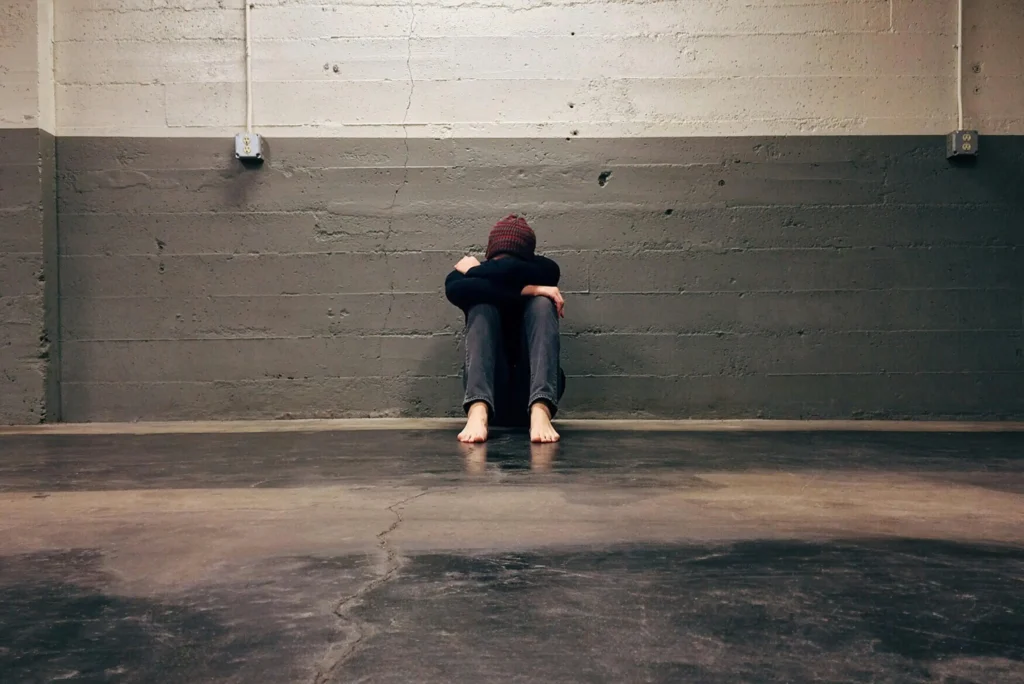Cocaine Abuse Effects
The Relationship Between Cocaine Use and Anxiety
Cocaine, while often sought for its euphoric rush, plays a significant role in altering brain chemistry, which, in turn, greatly affects our mental health, particularly in the realm of anxiety. This relationship between cocaine use and anxiety is not just a matter of chance but is deeply rooted in the substance’s impact on our brain’s functioning. Understanding this connection is essential for anyone grappling with cocaine use or those trying to support someone in their journey toward recovery.
- Cocaine’s Impact on the Brain: Cocaine causes a significant increase in dopamine levels, leading to the drug’s characteristic high. However, this alteration in brain chemistry can disrupt normal brain communication, leaving individuals more prone to anxiety.
- The Cycle of Use and Anxiety: The link between cocaine use and heightened anxiety is twofold. Active use of the drug can induce anxiety, and so can the period of withdrawal. This creates a vicious cycle where anxiety and cocaine use perpetuate each other, making recovery and management of mental health more challenging.
The relationship between cocaine use and anxiety sheds light on the broader implications of drug abuse on mental health. It highlights the importance of not only addressing the physical aspects of addiction but also the mental health challenges that come with it. Understanding this dynamic is crucial for those seeking to overcome addiction and for their support networks, emphasizing the need for a holistic approach to treatment and recovery.2
Effects of Cocaine on Anxiety
Cocaine use can worsen any pre-existing anxiety disorders. This means that if someone is already dealing with anxiety, using cocaine can make their symptoms significantly worse, creating a more challenging situation for managing their mental health.
Cocaine-Induced Anxiety Symptoms
- Heightened Paranoia: Cocaine can dramatically increase feelings of paranoia, causing users to feel excessively suspicious or fearful, often without a valid reason.
- Panic Attacks: Individuals experiencing cocaine-induced anxiety may also suffer from sudden and intense episodes of panic, characterized by a rapid heartbeat, sweating, and an overwhelming sense of fear or dread.
- Social Isolation: As anxiety symptoms worsen, individuals may begin to withdraw from social situations, leading to feelings of isolation and loneliness.
- Impaired Judgment: Cocaine-induced anxiety can cloud judgment and lead to risky or impulsive behaviors, increasing the likelihood of accidents, injuries, or poor decision-making.
- Irritability and Mood Swings: People experiencing cocaine-induced anxiety may exhibit increased irritability and rapid mood swings, which can strain personal relationships and create challenges in daily life.
- Sleep Disturbances: Anxiety caused by cocaine use can lead to insomnia or other sleep disturbances, further exacerbating the physical and mental toll of the drug.
Quick Tip
How does the process of cocaine withdrawal relate to anxiety symptoms?
The intense cravings and depression associated with cocaine withdrawal may exacerbate anxiety levels, underscoring the crucial role of professional support during detoxification.
Anxiety Disorders
- Generalized Anxiety Disorder (GAD): GAD is characterized by persistent anxiety, worry, and tension, even when there is little or no provocation.
- Panic Disorder: This disorder involves sudden, intense episodes of fear that often come with physical symptoms such as chest pain, heart palpitations, or shortness of breath.
- Social Anxiety Disorder: Social anxiety disorder is a condition where social interactions cause irrational anxiety, fear, self-consciousness, and embarrassment.
Can anxiety caused by cocaine use be alleviated?
In what ways does cocaine consumption impact anxiety levels?
What factors contribute to the higher prevalence of anxiety among cocaine users?
Mental Health
The impact of cocaine on mental health extends far beyond the realm of anxiety, profoundly affecting mood and cognitive functions as well. This broader spectrum of effects necessitates a comprehensive approach to mental health care, particularly for those in recovery.
- Beyond Anxiety: Cocaine’s Wider Effects
Mood Disorders: Cocaine use can trigger mood swings, depression, and even bipolar disorder, complicating the emotional well-being of users. - Cognitive Impairment: Regular cocaine use may lead to difficulties with memory, attention, and decision-making, hindering an individual’s ability to function effectively in daily life.
The necessity for comprehensive mental health care in the recovery process cannot be overstated. Addressing the multifaceted impact of cocaine involves not only tackling the substance abuse itself but also ensuring that the various mental health issues that arise receive proper attention and care. Embracing a holistic approach to recovery is essential. It acknowledges the complex interplay between substance abuse and mental health, offering a more effective pathway towards healing and long-term well-being.6
Get Help for Substance Abuse at Cornerstone
We offer a wide range of treatment for mental health and substance abuse conditions. Begin your journey to recovery today!
Addiction and Drug Dependence
Cocaine addiction and drug dependence reveals a complicated relationship marked by an intense and often uncontrollable urge to continue using the drug, despite the harmful repercussions it brings. The core aspects of addiction and dependence on cocaine can look like this:
- Psychological Addiction: This form of addiction is characterized by the mental and emotional drive to use cocaine, often seen as a way to escape reality, cope with stress, or feel a sense of euphoria.
- Physical Dependence: Over time, the body adapts to the presence of cocaine, leading to physical dependence. This means that stopping the drug can result in uncomfortable or even dangerous withdrawal symptoms, making cessation a significant challenge.
The dual nature of cocaine addiction and dependence is a huge step in addressing this issue effectively. Treatment and recovery efforts need to be comprehensive, tackling both the physical dependence and the psychological addiction to ensure a more successful and sustainable healing process.7
Withdrawal Symptoms and Dual Diagnosis
Tackling cocaine addiction is a challenge, made even more difficult by the withdrawal symptoms and the potential for a dual diagnosis but it’s never impossible. Understanding these factors is truly important for anyone seeking to overcome cocaine addiction or supporting someone through their journey. Withdrawal symptoms look like:
- Intense Cravings: The overwhelming desire to use cocaine again is a formidable obstacle during withdrawal.
- Depression: Withdrawal often brings about severe bouts of depression, making the recovery journey even more difficult. Can deeply affect one’s motivation and hope, increasing the risk of relapse as individuals may seek out cocaine to self-medicate their emotional pain.
- Anxiety: Many individuals also experience heightened anxiety during withdrawal, which can exacerbate feelings of discomfort and unease.
- Physical Symptoms: Apart from psychological symptoms, physical withdrawal signs can include fatigue, sleep disturbances, and physical discomfort, further complicating the recovery process.
- Irritability and Mood Swings: Withdrawal can cause significant mood fluctuations, leading to irritability and short tempers, which can strain personal relationships and social interactions.
Overcoming cocaine addiction is challenging due to withdrawal symptoms and the possibility of a dual diagnosis. Withdrawal can lead to intense cravings, depression, anxiety, physical discomfort, irritability, and mood swings. When cocaine addiction coexists with anxiety disorders, it is called a dual diagnosis, which complicates recovery as both conditions influence each other. Integrated treatment approaches are crucial for managing a dual diagnosis effectively, addressing both addiction and anxiety disorders simultaneously for a holistic recovery.8
Key Takeaways
- Key Takeaways
- The relationship of anxiety and cocaine: The relationship between cocaine use and anxiety is a complex and reciprocal one, with each condition having the potential to intensify the other, emphasizing the crucial need for both awareness and timely intervention.
- Dual Diagnosis: When cocaine addiction and anxiety disorders intertwine, it necessitates an integrated treatment approach that simultaneously addresses both conditions, ensuring a comprehensive and effective recovery journey.
- Withdrawal: The path of cocaine withdrawal is strewn with formidable obstacles, including overpowering cravings and the looming specter of depression, which underscore the paramount importance of unwavering support during this critical phase.
- Aftercare: The components of aftercare and relapse prevention are the bedrock of long-term recovery, illuminating the perpetual nature of the battle against addiction and the indispensable role of continuous care and support.
Cocaine Addiction Treatment
Effective treatment for cocaine addiction requires an approach that simultaneously addresses both the addiction itself and any co-occurring mental health conditions, such as anxiety:
- Integrated Treatment Plans: Combining therapy, possible medication, and support groups to tackle both addiction and anxiety together enhances the chance of a successful recovery.
- Therapy Options: Cognitive Behavioral Therapy (CBT) and other modalities like Dialectical Behavior Therapy (DBT) are crucial for changing harmful thought patterns and behaviors.
- Support Systems: Emotional support from family, friends, and peer groups plays a vital role in the recovery journey.
- Medication: May be used to alleviate withdrawal symptoms and treat co-occurring mental health issues.9
- Aftercare: Ongoing support and relapse prevention are key to maintaining sobriety and managing anxiety over the long term.
Addressing both cocaine addiction and anxiety with an integrated treatment approach offers a holistic pathway to recovery, underlining the complexity of addiction and the need for comprehensive care.
How We Can Help
If you or someone you love is battling cocaine addiction and anxiety, know that you are not alone. Reaching out for help is a sign of strength, and the dedicated team at Cornerstone Healing Center is ready to support you on your journey to recovery. With their guidance and your commitment to healing, it is possible to break free from the grip of addiction, manage anxiety effectively, and reclaim your life.
Take the first step today by contacting Cornerstone Healing Center based in Arizona. Our compassionate staff is dedicated to helping you build a strong foundation for lasting recovery, empowering you to create a brighter, healthier future free from the shadow of cocaine and anxiety.









